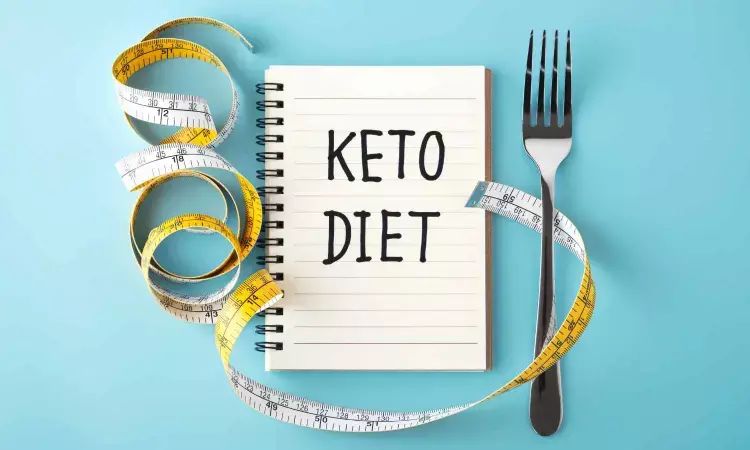- Home
- Medical news & Guidelines
- Anesthesiology
- Cardiology and CTVS
- Critical Care
- Dentistry
- Dermatology
- Diabetes and Endocrinology
- ENT
- Gastroenterology
- Medicine
- Nephrology
- Neurology
- Obstretics-Gynaecology
- Oncology
- Ophthalmology
- Orthopaedics
- Pediatrics-Neonatology
- Psychiatry
- Pulmonology
- Radiology
- Surgery
- Urology
- Laboratory Medicine
- Diet
- Nursing
- Paramedical
- Physiotherapy
- Health news
- Fact Check
- Bone Health Fact Check
- Brain Health Fact Check
- Cancer Related Fact Check
- Child Care Fact Check
- Dental and oral health fact check
- Diabetes and metabolic health fact check
- Diet and Nutrition Fact Check
- Eye and ENT Care Fact Check
- Fitness fact check
- Gut health fact check
- Heart health fact check
- Kidney health fact check
- Medical education fact check
- Men's health fact check
- Respiratory fact check
- Skin and hair care fact check
- Vaccine and Immunization fact check
- Women's health fact check
- AYUSH
- State News
- Andaman and Nicobar Islands
- Andhra Pradesh
- Arunachal Pradesh
- Assam
- Bihar
- Chandigarh
- Chattisgarh
- Dadra and Nagar Haveli
- Daman and Diu
- Delhi
- Goa
- Gujarat
- Haryana
- Himachal Pradesh
- Jammu & Kashmir
- Jharkhand
- Karnataka
- Kerala
- Ladakh
- Lakshadweep
- Madhya Pradesh
- Maharashtra
- Manipur
- Meghalaya
- Mizoram
- Nagaland
- Odisha
- Puducherry
- Punjab
- Rajasthan
- Sikkim
- Tamil Nadu
- Telangana
- Tripura
- Uttar Pradesh
- Uttrakhand
- West Bengal
- Medical Education
- Industry
Ketogenic diet may protect against stress experienced in the womb, suggests study

Researchers have shown that young rats fed a ketogenic diet - a diet with high fat and low carbohydrates - are protected from the lasting experience of pre-natal stress. This work, which needs to be confirmed in humans, is presented at the ECNP conference in Amsterdam
An extensive body of research has shown that if mothers experience stress while pregnant, the offspring can suffer ongoing psychological and development-related conditions.
Now a group of Italian researchers have shown that the biological changes induced by a ketogenic diet may help them to escape from the long-lasting effects of stress experienced in the womb.
The pregnant rats were stressed in the final week before birth. The offspring were weaned at 21 days after birth, and assigned either a control diet, or a ketogenic diet. At 42 days, the young animals were then tested for a variety of stress-induced deficits, such as poor sociability, or lack of interest in their surroundings (anhedonia). The animals which had received the ketogenic diet showed some notable differences over the control group, such as exhibiting longer grooming times, and greater sociability. The researchers found that if fed a normal diet, 50% of the rats born to stressed mothers showed stress-related problems in later life. However in those rats fed a ketogenic diet only 22% of male offspring, and 12% of female offspring, developed these problems.
The ketogenic diet has been shown to induce a variety of biological changes, such as enhancing mitochondrial efficiency and changing hormone balance.
According to lead researcher Dr Alessia Marchesin (of the University of Milan):
“We discovered that feeding young rats a ketogenic diet - a high‑fat, very low‑carbohydrate regimen - right after weaning almost completely protected them from the lasting effects of stress they’d experienced before birth. The diet seems to have acted like a shield for their developing brains, so preventing social and motivational problems from ever taking root.
This matters because it suggests a simple way to prevent the occurrence of mood and social disorders that often originate from childhood adversity. Rather than waiting until symptoms appear and then treating them with medications-many of which carry side effects-we might one day take advantage of the therapeutic properties of dietary interventions early in life to prevent the manifestation of full-blown pathologic condition. What’s more, we found that males and females benefited via different biological routes—males by reducing inflammation, females by boosting antioxidant defences-hinting that we could personalize and refine such dietary interventions.
If these findings translate to humans, we may be able to treat the long-term burden of prenatal trauma simply by adjusting what at‑risk kids eat”.
She added,
“There are a couple of points to note. The animals on the ketogenic diet grew more slowly than the controls, and so it may be that the reduced calory intake is associated with the later mental health benefits. And we see sex-specific differences which need to be better understood before we can apply this to humans”.
Reference:
Ketogenic diet may protect against stress experienced in the womb, European College of Neuropsychopharmacology, Meeting: 38th ECNP Congress.
Dr Kamal Kant Kohli-MBBS, DTCD- a chest specialist with more than 30 years of practice and a flair for writing clinical articles, Dr Kamal Kant Kohli joined Medical Dialogues as a Chief Editor of Medical News. Besides writing articles, as an editor, he proofreads and verifies all the medical content published on Medical Dialogues including those coming from journals, studies,medical conferences,guidelines etc. Email: drkohli@medicaldialogues.in. Contact no. 011-43720751


